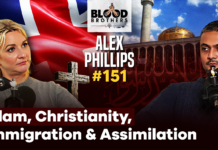The UK Government’s controversial counter-terrorism Prevent strategy is to be independently reviewed after ministers were pressured to address endless problems over its implementation and negative impact on communities.
The security minister, Ben Wallace, announced the review in the House of Commons yesterday but argued that critics of the Prevent strategy have to provide “solid evidence of their allegations”. He also accused critics of using “distortion and spin”.
The decision was made after the UK government accepted an amendment to the counter-terrorism and border security bill passing through parliament.
The Prevent strategy currently has a statutory duty for local authorities, prisons, NHS trusts, schools and universities to report people who show signs of being “radicalised”.
Human rights and civil liberties groups such as Amnesty International called for an independent review of Prevent in November 2018, claiming that it disproportionately targets Muslims.
However, Muslim grassroots Muslim groups like CAGE, MEND, the Islamic Human Rights Commission (IHRC) and others have consistently called for a total abolishment of Prevent, arguing that the strategy is institutionally Islamophobic, racist and seeks to silence dissenting views.

Wallace said: “I have decided that the time is now right to initiate a review of Prevent.
Subscribe to our newsletter and stay updated on the latest news and updates from around the Muslim world!
Communities across the country have got behind the policy and are contributing to it because they want, as we do, their own young people to be protected from grooming and exploitation by terrorists.
“Over the last two years the Home Office has built on the solid work of Prevent by releasing annual statistics. They clearly show that Prevent is not about singling out any particular group or ideology but is similar to other forms of safeguarding carried out every day by social workers, teachers and police.
“I am proud we have helped divert hundreds of people away from posing a real threat and put them back on the path of living a fulfilling, law-abiding life.”
The independent review will start within six months of the legislation coming into effect and there will be a requirement to report back to parliament within 18 months.
A chronology of mainstream opposition to Prevent
- December 2014: Britain’s most senior counter-terrorism officer at the time, Sir Peter Fahy, stated that Prevent was hampered from the onset due to the Iraq war, and he argued that defining “extremism” was not the responsibility of the police.
- March 2015: More than 240 leading Muslim organisations, scholars, imams, activists, teachers, doctors and journalists issued a joint statementagainst the CTS Bill, specifically the statutory standing of Prevent.
- March 2015: The former Metropolitan chief superintendent Dal Babudescribed Prevent as a “toxic brand”.
- July 2015: More than 280 academics and NUS members issued a public statement against Prevent, stating that it would have a “chilling effect on free and open debate and political dissent,” adding that “it shifts attention away from grievances that drive individuals towards an ideology that legitimises political violence”. The public statement concluded by calling for Prevent’s total abolition.
- September 2015: the then Independent Reviewer of Terrorism Legislation, David Anderson QC, criticised the then Home Secretary Theresa May for her policies under the Prevent strategy, as he believed they risked extending the “surveillance state” too far.
- October 2015: The “Keep Mosques Independent” initiative, which is being led by the largest council of mosques from the north of the country, representing hundreds of thousands of British Muslims, issued a statement against state interference in madrassas under the Prevent strategy.
- November 2015: Labour MP for Bradford West, Naz Shah, who was formerly a member of the Home Affairs Select Committee for countering extremism, said in a statement that Prevent is perceived by many ordinary Muslims as “toxic”.
- December 2015: Waltham Forest Council of Mosques, which represents more than 70,000 Muslims, vowed to boycott Prevent, and also described it as a “racist policy” which targets Islam and Muslims.
- December 2015: Imams in east London backed by non-Muslim teachers, community organisations and student unions, claimed that Prevent was spying on Muslim students, which has led to “increasing division and to a breakdown of trust in schools and colleges”.
- January 2016: The former chairman of Birmingham Central Mosque, Muhammad Afzal, described Prevent as “racist” and called for its boycott for indiscriminately targeting Muslims.
- January 2016: The Vice-Chancellor of Oxford University, Professor Louise Richardson, argued that “extremists” should be allowed to speak at universities, and banning them from doing so would be a fundamental impingement of free speech.
- September 2016: 140 psychologists issued an open letter stating that the ‘ERG22+’ science which underpins the Prevent strategy lacked evidence.
- June 2017: United Nations rapporteur criticised prevent as being “inherently flawed”.
- November 2018: An open letter signed by eight prominent civil liberties and human rights groups including Amnesty International, Human Rights Watch, Liberty and others called for an independent review of Prevent, describing it as “discriminatory” against Muslims.




















